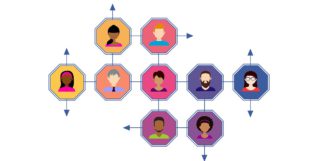
How To Land The Perfect Job: Don’t Expect It The First Time Out
- February 20, 2018
- Marketing Team
Hot-off-the-presses degree in hand, you’re about to march off into the working world. Your expectations are high, your optimism boundless. This is it. You’re about to find the job that will put all your hard-won education to use, be a welcoming outlet for your own special talents, and fill you with the deepest sort of satisfaction.
A hearty round of applause here for your youthful exuberance, and there’s no one who wouldn’t wish you the wind at your back. But get real.
A first post-grad job is not likely to be the perfect one. It happens, like Yeti sightings, but it’s rare. What a first job is, though, is a try out. A chance for you to test your assumptions against the realities of what it’s actually like in the day to day. It’s also an opportunity to reassess what you’re looking for and prepare for your next step.
This isn’t meant to be a free pass to quit after three weeks. A first job is going to be prominent on your resume for the next one, as well as provide a reference you hope is good, and you’ve got to give it your all and respect the employer who spent time, energy, and money on the process that brought you in. So think carefully before you start the application process.
Read Between the Lines
Don’t jump on every job posting you see. First ask yourself if it has the possibility of being a fit:
- Is it realistic? If a job is going to call for a lot of travel, for example, are you willing to spend a good part of your time on the road and away from home? Are you able to pick up and move if the company is headquartered in another city or state? Even more importantly, does the job require skills you don’t have? Learning some aspects on the job may be an option, but you’re just wasting everyone’s time if you apply for a position you know you’re not qualified for.
- Does it complement your interests? A job may sound good on paper, but do you know what it entails day to day? Do your research because we’re talking about your life here. What do you want to spend it doing?
- What are its long-term prospects? Research the market for the career you want. Is it a growing field? Is there high demand for people who can do the job or is there an over-supply of qualified professionals doing the same work? It might have been a good idea to think about that before you chose your major, but it’s not too late to re-set your sights. Unless they’re highly technical or specialized, college majors aren’t necessarily important to the field you ultimately enter.
- Will it provide the financial rewards you need? People select careers for a lot of different reasons, but at bottom, your job needs to support you during your working life and provide resources for savings.
Make Your Application Stand Out
No matter what the job, there are going to be a lot of people applying for it. That’s why your resume has to be spot on and your cover letter has to shine. There are lots of samples and tips available online, so check them out. Studies have shown that hiring managers spend, on average, just 15 to 20 seconds looking at a resume before deciding to read it fully and yours has to grab them right away.
Once you see a job you want to apply for, don’t drag your feet, either. Companies will hire the first person who qualifies and not wait to see what other applications come in. You could be perfect for the job but no one will know it.
Prepare for Your Next Job Now
You’re probably not going to find a first job that ticks all the boxes. It’s also extremely rare that the first company you work for will be the one you stay at for your entire career. Millennials are much less likely to stay with a company for the long term than previous generations did, and there’s no sign that Gen Z is going to be different. So moving around is almost definitely in your future.
No matter what you first job turns out to be, prepare for your next one by enhancing your education. You can get an advanced degree no matter where you are and no matter what you’re doing. You can even get a California MBA online without being anywhere near California. The benefits include broadening your scope of knowledge and giving you tools for effective communication, critical thinking, and creative problem-solving. Having an MBA on your resume will allow you to compete for a greater range of opportunities, whether it’s a promotion or a new setting entirely.
Inspiring Interns, specialises in sourcing candidates for internships and graduate jobs.






